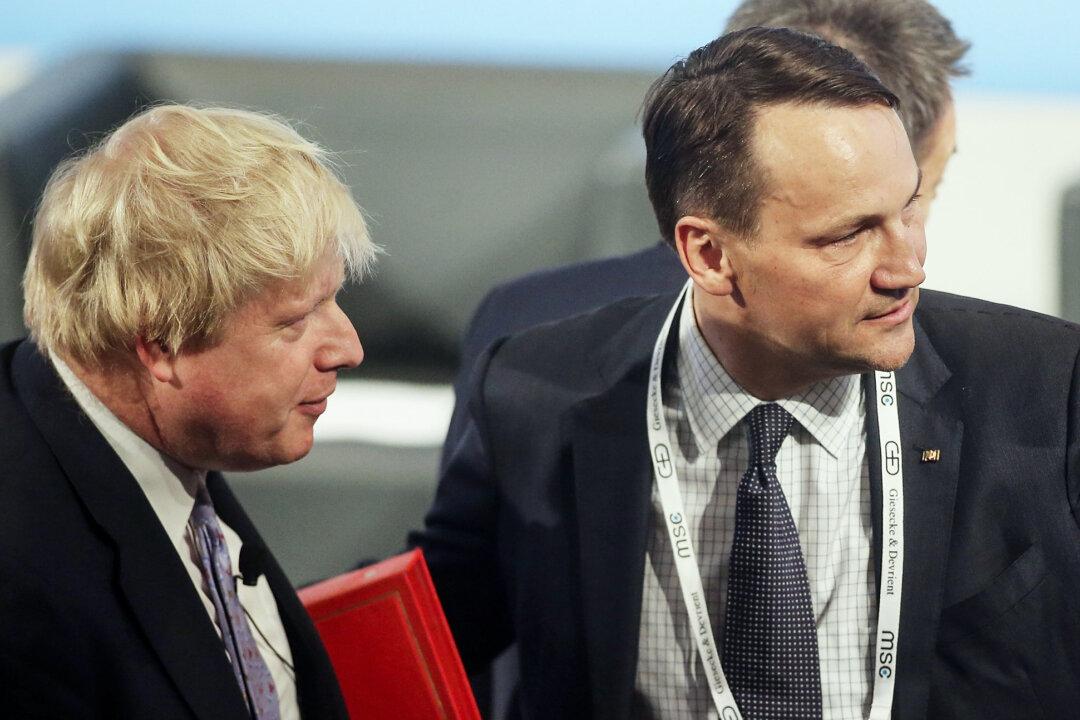WASHINGTON—Britain’s long and complicated exit from the European Union (EU) has been so negatively viewed by the bloc’s other members that even EU-skeptics have changed their opinion, said Radoslaw Sikorski, a member of the European Parliament.
Sikorski, who chairs the European Parliament’s delegation for relations with the United States, said at an event hosted by The Christian Science Monitor on Dec. 13 that “the English Europhobes” wrongly assumed that the UK’s departure from the EU would trigger a domino effect and cause the union to collapse.





